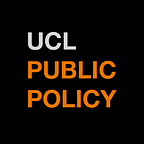Transforming research culture
The Royal Society’s 2-day conference examining research culture in the UK was refreshing both because it offered a dedicated focus on this vital but too often overlooked issue, and because of the plethora of ‘non-usual’ suspects (as well as the great and the good!) who were speaking — it was genuinely refreshing to see a healthy proportion of women, those from BME backgrounds, and those earlier in their careers. (The fact that this struck me so strongly is in itself probably a strong indictment of the predominantly middle-aged, white male ‘visible face’ of our research culture.)
A particularly energetic theme of the two days was the challenge to the orthodoxy of competition — the idea that the best research emerges from a highly competitive culture. Whilst there is undoubtedly a role for competition and differential assessment, it seems clear the value of team working and collaboration has been far too neglected for far too long. It was highly encouraging to see the appetite for thinking more about how to develop a more collaborative and inclusive research culture and the recognition that these aspects should be inherent to how we conceive of ‘research excellence’. Julia Slingo’s inspiring description of how she had fostered a positive and inclusive working environment, and of the key elements in this — including space for creativity, fostering collaboration, mobility and cross-disciplinary thinking, championing diversity and enabling flexible working for those with caring responsibilities — provides a clear model for us all to emulate.
There were many interesting ideas aired throughout the day; of specific interest to me were the frequent references to the idea that researchers should engage more with the public policy sphere — as someone who has spent the last six years advocating for this within my own university and more broadly, it is very welcome to observe the shift from this being a fringe idea to something which is now firmly within discussions of how to open up research culture.
There were two particularly strong take-aways. Firstly, the need to think much more seriously and ambitiously about how to create a more porous research culture and enable more mobile and flexible research careers. In one of my breakout discussions, someone asked why we talk about the career ‘pipeline’ as if it’s entirely linear, and why we only talk about a single pipeline. Moving towards a structure for research careers that involves multiple, intersecting, pathways, and that allows researchers to work in and develop knowledge of other sectors and practices should be a key ambition for us all.
Secondly, the need to reassess our attitude to ‘super-chickens’ — as Margaret Heffernan so memorably described them: those lone, ‘star’ academics that work (or seem to work) in isolation. Her powerful argument for the importance and effectiveness of team-working and the need to foster collaboration, rather than isolation, suggests to me that we need to redefine or broaden our notion of what ‘research leadership’ is. Moving to a concept of inclusive and collaborative leadership, which recognises a responsibility to and reciprocity with colleagues, is a much healthier one for our research culture.
These are both ideas I have been reflecting on as I and colleagues at UCL have been revising our Research Strategy and which we will incorporate and develop in the coming months.
A final note of caution. It is easy, in rooms in which we are speaking within our research community, to start to take certain things for granted — the value of research, the importance of public investment in research, and so on. However, in the current climate, where there is an increasingly compelling need for research to consider and contribute to public good, we must be careful to avoid any sense of entitlement. I felt some of our discussion too often started from an unquestioning assumption that researchers deserved to receive funding, without thinking about how research is inherently integrated with wider society. If we are to open up these discussions of research culture beyond the walls of the Royal Society, we need to think seriously about our societal responsibilities. Whilst a room full of peers may be tolerant of an argument that could be boiled down to: ‘Give us money coz we deserve it’, the world beyond the Royal Society may be less understanding.
Sarah Chaytor is Director of Research Strategy & Policy at the Office of the Vice-Provost (Research), UCL
